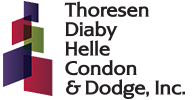October 2017
Tax Filing Reminders
- October 16 –
- Filing deadline for 2016 tax returns for individuals or corporations if you requested/received a six-month extension. Pay taxes due by this date.
- Deadline to recharacterize a Roth IRA to a Traditional IRA.
- Deadline to fund your Keogh or SEP plans if you requested a filing extension.
How to Ace the FAFSA
The Free Application for Federal Student Aid (FAFSA) is a tool that students use to apply for more than $120 billion in federal funds. Unfortunately, each year many students miss out.
Even if you don’t think you or your child qualify for federal aid, filling out a FAFSA is important because it could be used to determine eligibility for nonfederal aid and private funds.
FAFSA available October 1, 2017
Previously, the FAFSA was unavailable until January. A recent change makes the application available October 1, 2017. That’s because the 2018-19 FAFSA can be completed with your 2016 tax info.
Avoid FAFSA mistakes
Don’t forgo federal student aid by making one of the following common filing mistakes:
Mistake: Not reading the instructions or questions
Tip: Answer all questions – even if the answer is zero. If left blank, the question will be considered unanswered. Check the FAFSA website if you are unsure of definitions of key FAFSA terms.
Mistake: Incorrect, incomplete or non-matching data
Tip: Complete the FAFSA online. It takes only 3-5 days to process when submitted electronically. The online version has built-in safeguards that identify and prevent many errors.
Mistake: Not filing on time
Tip: Get the application submitted ASAP. The sooner you or your child gets started, the higher the likelihood of being awarded funds since many are distributed on a first-come, first-served basis.
Remember, students need to complete a FAFSA each year because eligibility does not carry over and can vary based on circumstances.
Renew your ITIN now
If you have an Individual Taxpayer Identification Number (ITIN) rather than a Social Security number (SSN) you may need to take action or you’ll be unable to file a tax return for 2017.
What to know about ITINs
ITINs are identification numbers issued by the U.S. government for individuals who do not qualify to receive an SSN. An ITIN can be used to file tax returns and is also a form of identification often required by banks, insurance companies and other institutions. Unfortunately, ITINs are also a source of identity fraud. To combat this, the 2015 PATH Act made substantial changes to the program. Now a number of ITINs will expire if not renewed by December 31, 2017.
No ITIN, no problem. If you do not have an ITIN, but have an SSN, this expiration does not affect you.
No tax return in past three years. ITINs that have not been used when filing a tax return at least once in the past three years will automatically expire on December 31, 2017.
Middle digits of 70, 71, 72 and 80 also expire. The new law creates a rolling expiration date for all issued ITINs. The key number to look for is in this position: 9xx-XX-xxxx. If your ITIN has any of those numbers, you’ll need to renew it. Last year the middle digits of 78 and 79 expired.
Renew your ITIN
Don’t wait until the last minute and then discover your tax return has been rejected and your refund is delayed because of an expired ITIN. To renew, fill out Form W-7 with the required support documents. To learn more, visit the ITIN information page on the IRS website.
Business tax: time to consider Section 179?
Section 179 expensing can be a very powerful tax-planning tool for small- and medium-sized businesses acquiring capital assets. While it doesn’t change the amount of depreciation you can take over the life of a capital purchase, it can change the timing by allowing you to deduct your purchase in the first year you place it in service.
Review these details if you’re considering depreciating your business assets under Section 179:
- Section 179 allows deducting the expense of up to $510,000 of qualified business purchases.
- A Section 179 deduction cannot create a loss for the business.
- A Section 179 deduction must be for business use. If an asset is not entirely used for business, the allowance is reduced.
- If you sell a Section 179 asset prior to the full depreciation period, you will have to record any sales proceeds as taxable income.
- Many states limit the use of this federal shifting of depreciation.
Taking Section 179 for capital purchases can be useful, but it’s not for everyone. Using it for an immediate tax break means it’ll no longer be available for future years.
